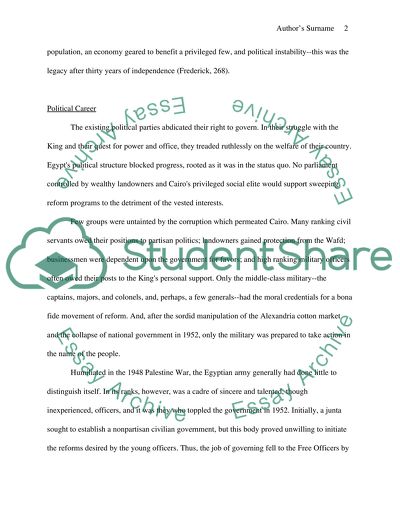Cite this document
(“Gamal Abdel Nasser Essay Example | Topics and Well Written Essays - 3500 words”, n.d.)
Retrieved from https://studentshare.org/politics/1521485-gamal-abdel-nasser
Retrieved from https://studentshare.org/politics/1521485-gamal-abdel-nasser
(Gamal Abdel Nasser Essay Example | Topics and Well Written Essays - 3500 Words)
https://studentshare.org/politics/1521485-gamal-abdel-nasser.
https://studentshare.org/politics/1521485-gamal-abdel-nasser.
“Gamal Abdel Nasser Essay Example | Topics and Well Written Essays - 3500 Words”, n.d. https://studentshare.org/politics/1521485-gamal-abdel-nasser.


